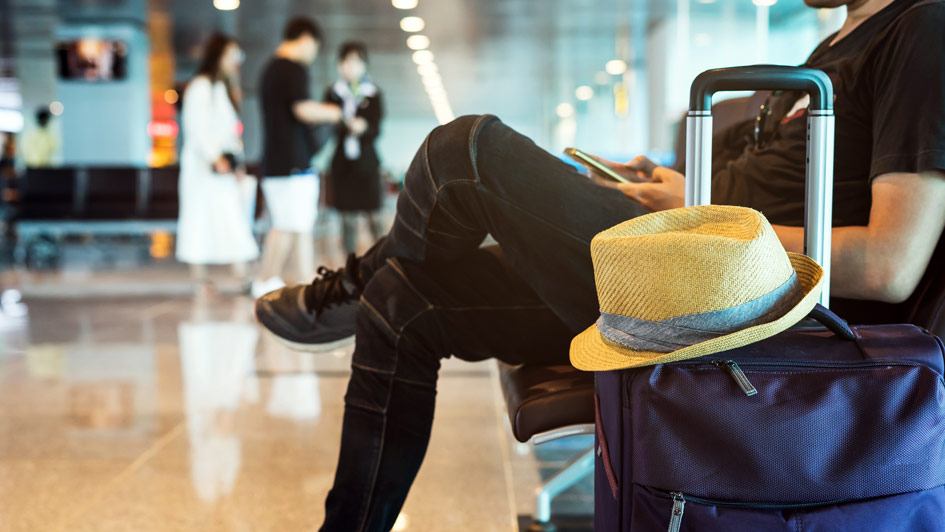
Between a relaxing vacation or a lengthy trip for work, taking a trip means making plans for your home comfort system. You won’t be using it if you’re not home, so you can adjust it as necessary to minimize your energy use. Simultaneously, you shouldn't just turn it off for the entire time you're gone.
In general, it’s ideal to leave your HVAC system running and just raise or lower depending on whether it's winter or summer. That way you can minimize energy costs without having to worry about getting back to an uncomfortable home. We’ll explain why you should avoid turning your HVAC system off as well as the ideal thermostat settings for different times of year.
This Is Why You Don't Leave Your Thermostat on Hold
While you might be tempted to leave your HVAC system off before a trip, this could end up stirring up big problems by the time you come back. This is particularly true in case the weather will be severely hot or cold while you’re out of town.
For instance, shutting the HVAC system off during the summer will sometimes lead to very high humidity. Not only will your home feel gross when you come back, but it might have also invited mold/mildew growth or pest infestations.
And over the winter, letting your house get cold might lead to pipes freezing or even bursting. It’s an awful feeling to come home from a long trip only to find extensive water damage near a broken pipe.
Ideal Thermostat Settings While at Work
You can make temperature adjustments even as you come and go to work. Considering you’re away for about 8 hours or longer, it doesn’t help your monthly energy bill to keep an empty home at the same temperature you’d usually have. Generally, it’s recommended to adjust the thermostat by 5 degrees or more. Meaning that if you prefer a comfortable 72 degrees, try adjusting it to 76-77 while you’re out.
But you could save even more if you're open to further adjusting the temperature. According to the Department of Energy, you might save nearly 10% on your HVAC spending by increasing the adjustment to 7-10 degrees.
Energy-Efficient Thermostat Settings While on Vacation in Summer
If you leave for an extended trip in the hottest part of summer, you can make larger adjustments. This helps you avoid using too much energy while still defending your home from the problems that come with leaving it un-air conditioned. About 5 degrees is recommended for short trips while a larger adjustment of 10 degrees is worthwhile if you’ll be out of town for 2 weeks or longer. If you enjoy keeping the house at 72 in the summer, 78-82 will offer beneficial results.
Ideal Thermostat Settings While Away from Home in Winter
To determine the most energy-efficient thermostat setting for a winter getaway, simply lower it by the same amount you would increase it in summer. 68 is a frequent winter thermostat setting, so lowering it to 63-58 will protect your plumbing while limiting how often your furnace operates.
A Smart Thermostat Can Help: Perks of a Smart Thermostat
A great way to optimize your home’s HVAC system while away is by investing in a smart thermostat. This advanced type of programmable thermostat utilizes intelligent software to monitor your usual comfort habits. It applies these preferences and makes automatic changes to the schedule for better energy efficiency. And with Wi-Fi integration, you can remotely control your heating and cooling using a mobile device or tablet.
Smart thermostats are packed with features to help you save energy and lower costs. For instance, some models can track electricity prices to bolster heating or cooling when prices are lowest. They are compatible with high-efficiency, variable-speed equipment to optimize how long your HVAC system has to run. It’s the perfect tool to enhance how you control your comfort system. If you’re thinking about investing in a smart thermostat, there are a variety of ways you can lower your costs, in essence getting a smart thermostat for free. The next time you are away from home, you can receive true peace of mind that your HVAC system won’t cause any trouble while you’re away from home.


